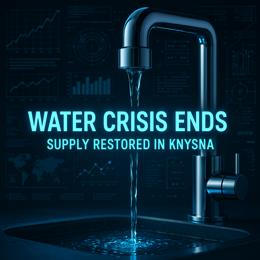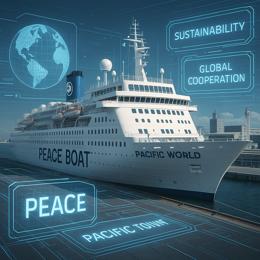Image created by AI
Johannesburg Water Crisis: Tensions Rise as Residents Consider Rates Boycott
Tension is brewing in Johannesburg as the city grapples with a protracted water crisis that has left many communities dry for nearly a week. In an unprecedented move that underscores the frustration among city dwellers, some residents are contemplating a rates boycott. The dire situation puts the spotlight on municipal service delivery challenges and residents' growing impatience.
Mayor Kabelo Gwamanda has publicly denounced the idea of a rates boycott, emphasizing its potentially devastating effects on the municipality's financial stability and service delivery capabilities. Speaking to the press on Friday, the mayor articulated his concerns that withholding payments would not only cripple current operations but could lead to a total collapse of the city’s administration.
Despite the mayor's stern warnings, the prospect of a rates boycott has struck a chord with some of the city's ratepayers' associations and ward councillors. These groups are at the tipping point, driven by a sentiment that the municipal government is not delivering on its promise of basic services, making the withholdment of payment a drastic yet considered option.
The water outages have not only inconvenienced residents but have also raised health and sanitation concerns, as running water is essential for everyday life and crucial to maintaining hygiene standards, particularly in the wake of global health scares.
In exploring the potential boycott, residents and community leaders express that their end goal is not to damage the municipality but rather to hold it accountable. They argue that as ratepayers, there is an expectation of service delivery that, when not met, should lead to some form of redress or compensation.
The City of Johannesburg, already struggling with service delivery complaints ranging from pothole repairs to refuse removal, now faces the significant challenge of restoring water supply and convincing its citizens that continued financial support through rates is justified.
The situation presents a multi-layered challenge involving not just the immediate need to solve the water supply problem, but also addressing the longer-term issues of infrastructure maintenance, community trust and the financial implications of potential civil disobedience.
Stakeholders including city officials, affected residents, business owners, and civil society groups are calling for an urgent and transparent resolution process to the ongoing water crisis. They are asking for clear communication, immediate action to restore water supply, and a long-term plan to prevent future outages.
In conclusion, the Johannesburg water crisis has brought to the fore a serious debate about the accountability of municipal service delivery and the rights of residents as paying consumers. How the City tackles this crisis could set a precedent for how service delivery challenges are addressed in South Africa's urban centres moving forward.










